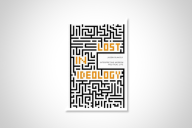You have /5 articles left.
Sign up for a free account or log in.
Reading the scholarship devoted to the phenomenon of blogging sometimes calls to mind a comment that Jackie Gleason is said to have made about people who review TV programs -- that it's "like writing about a car wreck for an audience made up entirely of eyewitnesses."
Not that researchers shouldn't gather data from LiveJournal, or make connections between the blogosphere and Jurgen Habermas's Structural Transformation of the Public Sphere, or whatever. But even the most impressive work tends to tell you something you already know, more or less.
For example: A recent number-crunching analysis of political blogging during the 2004 election demonstrated, among other things, that conservatives have created a dense online social network -- one with strong links among sites, that is, making them an effective medium for focusing on a particular topic or message.
Bloggers to the left, by contrast, have created a much less compact and efficient network. The tables and charts that the researchers prepared to demonstrate this are impressive enough. Even so, it all adds up to something slightly less incisive than an observation made, sooner or later, by anyone watching American political life: that there is an almost instinctive tendency on the part of self-identified "progressives" to cooperate just long enough to form a circular firing squad.
To be fair, the ideas and methods used in blog scholarship are sometimes more thought-provoking than the immediate results. That's especially true, it seems to me, with research using models of how networks emerge and function. (Then again, there is always something a little awesome about finding that "the unreasonable effectiveness of mathematics" that Eugene Wigner pointed out in the natural sciences also applies to human behavior en masse.)
But with an awful lot of work on the content and context of blogging, you have the Jackie Gleason effect in purest form. It isn't anybody's fault. The problem, arguably, is endemic to just about any kind of qualitative (that is, non-statistical) research on a new social phenomenon. In short: how do you get from offering a description to forming concepts? The conundrum may be even tougher with an emergent cultural form such as blogging -- one prone, that is, to incessant labors at self-definition, self-promotion, and self-mockery.
So what would a really interesting and exciting piece of qualitative research on blogging look like? And how would it get around the problems of overfamiliarity with the phenomenon (on the one hand) and blogospheric navel-gazing (on the other)?
To get an answer, it isn't necessary to speculate. Just read "The Vulgar Spirit of Blogging: On Language, Culture, and Power in Persian Weblogestan," by Alireza Doostdar, which appears in the current issue of American Anthropologist. A scanned copy is available here. The author is now working at the Center for Middle Eastern Studies at Harvard University, where he will start work on his Ph.D. in social anthropology and Middle Eastern studies.
"Weblogestan" is an Iranian online slang term for the realm of Persian-language blogs. (The time has definitely come for it to be adapted, and adopted, into Anglophone usage.) Over the last two years, Western journalists have looked at blogging as part of the political and cultural ferment in Iran -- treating it, predictably enough, as a simple manifestation of the yearning for a more open society. Doostdar complicates this picture by looking at what we might call the borders of Veblogestan (to employ a closer transliteration of the term, as used specifically to name Iranian blogging).
In an unpublished manuscript he sent me last week, Doostdar provides a quick overview of the region's population: "There are roughly 65,000 active blogs in Veblogestan," he writes, "making Persian the fourth language for blogs after English, Portugese, and French. The topics for blog entries include everything from personal diaries, expressions of spirituality, and works of experimental poetry and fiction to film criticism, sports commentary, social critique, and of course political analysis. Some bloggers focus on only one of these topics throughout the life of their blogs, while others write about a different topic in every new entry, or even deal with multiple topics within a single entry."
He notes that "a major factor in the widespread adoption of blogging" in Iran "has been the Unicode standard, which has made it possible for people to write and publish easily in the Persian script." Nor does it hurt that it is easy to set up a blog -- or to use a pseudonym. The result has been the creation of a medium that cuts across social and geographic boundaries. In his manuscript, Doostdar says that his work bought him into contact with "high school and university students, journalists, literary critics, Web designers, women's rights activists, and statesmen, living in Tehran, Toronto, Berlin, New York, London, Prague, and Paris, along with numerous other anonymous and half-anonymous bloggers scattered around the world."
Except for the part about writing Persian script using Unicode, this is a familiar picture of the blogging world. It is, in effect, a neighborhood within what Manuel Castells identified, some years back, as "the network society" -- a global "space without a place." And Doostdar's account of the routine practices among Iranian bloggers will also ring a bell with their American cousins. There are group blogs, "trackback pings," comment fields, blogrolls, and even emoticons (the horror, the horror ;-).
At one level, then, it sounds like a new chapter in the worldwide spread of homogenizing mass media. The more globalization-friendly spin on this would be that blogging is a tool with which Iranians are creating a culture that challenges the fundamentalist social order.
Fortunately, Doostdar's work does not stick to either of these scripts. His paper in American Anthropologist looks at a controversy that raged during the final months of 2003 -- the bahs-e ebtezaal or "vulgarity debate," a heated discussion of the place of blogging in Iranian culture. On one side were members of the roshanfekr class -- meaning those writers and intellectuals possessing an "enlightened mind," but also a certain degree of education, sophistication, and social prestige. The term, writes Doostdar, "has historically come to represent one who is conversant with modernist or postmodernist discourses, is a humanist, feels a certain commitment toward the well-being of his or her won society, and continually and publically [criticizes] the values, norms, and behaviors of that society."
There are members of the roshanfekr classwho write for blogs, but they have other outlets as well, including newspapers and magazines. On the other side of the debate were Iranian bloggers who were "not intellectuals by social function or profession." The practice of blogrolling and cross-referencing allowed some of them to gain "popularity and a reputation within the community of bloggers."
But it was precisely the "focus on a contextual constitution of self" (with its attendant rituals of backscratching and mini-celebrity) that made blogging a venue for "a radically different set of priorities" from those of "the more 'noble' genres of traditional journalism and literary composition" practiced by the roshanfekr class. "In blogging," writes Doostdar, "speed often takes precedence over thoroughness, outlandishness over rigor, and emotive self-expression over dispassionate analysis."
In October 2003, Seyyed Reza Shokrollahi. a prominent journalist and literary critic, referred to "the stink of vulgarity in Weblogestan" -- complaining about the spelling errors, sloppy language, and low argumentative standards prevailing among bloggers. And as a nice touch, he did this on his own blog. The effect, as Doostdar put it, was to unleash "a cacophony of blog entries, online magazine articles, comments, responses, and counterresponses that continued for several weeks."
Some of the non- roshanfekr who denounced "intellectualist pretense" appear to have taken extra care to make errors in spelling and grammar when they replied. (As Doostdar puts it, they tried to "metapragmatically index themselves as linguistic and cultural rebels by being deliberately careless.")
And you can feel the seething bitterness of one blogger who denounced a prominent journalist and short story writer: "Keep mistaking this place as a literary conference when others consider it to be an informal and safe place for chatting. Come sit down wearing a suit and tie and mock those who are wearing jeans."
The populist tone is familiar. Change the accent, and it wouldn't sound out of place on Rush Limbaugh's radio show. And yet the lines in the Iranian vulgarity debate were not drawn for the convenience of American pundits.
For one thing, it isn't the familiar story of democratic reformers versus fundamentalist mullahs. It's more complicated than that. The liberalizing influence of the roshanfekr intelligentsia, "although significant, is still small relative to the dominant traditionalist clergy," writes Doostdar. "Their strongest cultural and political leverage is most likely among academics and in the domain of print media..." Going online gives them "a much less restricted environment for publication and cultural-political action" -- but in a space where "just about anything can (and does) get published and there is no authority to enforce linguistic and cultural standards."
The result? Well, consider the case of Seyyed Reza Shokrollahi, who launched the initial salvo against "the stench of vulgarity in Weblogstan." Shortly afterward, he created a Web page with links to online editions of fiction that is censored in Iran. But according to Doostday, some "charged that he wanted to stifle free speech" with his criticism of vulgarity, "and compared him to government censors."
On Thursday: Using a Soviet dissident theorist's work to think about the blogopshere Also: is there a "pious spirit of blogging" in Iran?








